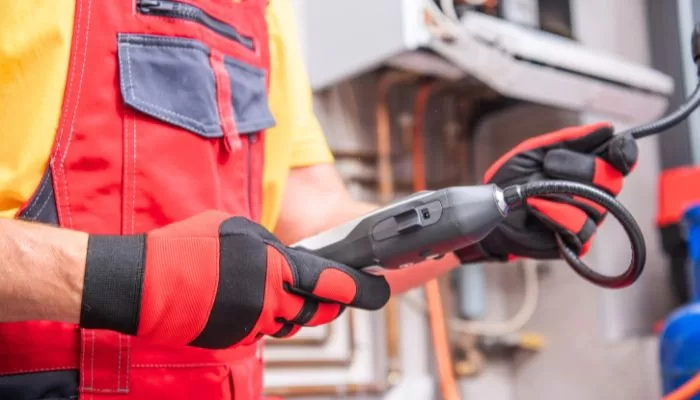Lifestyle
The Importance of Gas Safety Certificates: Legal Requirements and Best Practice for Landlords

A Gas Safe Landlord Certificate, also known as a Gas Safety Certificate or Gas Safety Record, is an important legal document for UK landlords, ensuring the safety of gas appliances and fittings in rented properties. Landlords are required by law to obtain this certificate and can do so through an annual maintenance inspection by a qualified engineer. This report explains the requirements, responsibilities and implications of these certificates. A Gas Safe Landlord Certificate is a UK legal requirement for landlords of rental properties with gas appliances. The certificate keeps tenants safe by checking that all gas fittings and appliances are working properly and comply with safety regulations. The certificate is issued following an annual inspection by a qualified Gas Safe Registered Engineer and has important legal implications for landlords.
Gas Safe Landlord Certificate Definition
A Gas Safe Landlord Certificate is a legal document that certifies the safety of gas appliances and fixtures in a rented property. The certificate is issued by a qualified engineer who carries out gas safety tests to check compliance with safety regulations, in particular the Gas Safety (Installation and Use) Regulations 1998.
The Importance of Inspections
Regular inspections are not only a legal obligation, they are also essential for the safety of tenants. These checks help to identify faults and potential hazards associated with gas appliances and installations. Landlords should keep records of inspections to prove compliance and proper maintenance of their gas systems.
Legal Requirements
UK landlords are required by law to renew their Gas Safety Certificate every 12 months. The replacement process involves a thorough inspection of all gas appliances, chimneys, flue pipes and fittings by a licensed gas fitter. In addition, landlords must provide their tenants with a copy of the certificate within 28 days of the inspection.
Landlord Responsibilities
Landlords must ensure their property is safe and suitable for habitation, including by carrying out an annual gas safety inspection. They are responsible for the safety of all gas fittings and fittings in their rented premises and have a duty of care to their tenants. Failure to comply with these regulations can result in heavy fines and even imprisonment.
Consequences of Non-Compliance
Failure to comply with valid gas safety protocols can result in serious penalties, including fines of up to £6,000 and/or imprisonment for up to six months. In addition, landlords can be liable for any gas-related accidents on their premises if the required tests are not carried out.
Cost of a Gas Safety
Test The cost of a Gas Safety Certificate will typically be between £30 and £150, depending on factors such as the number of gas appliances and the location of the premises. Landlords are advised to obtain quotes from several qualified engineers to get a competitive inspection price.
The Role of the Engineer
Only qualified Gas Safe registered engineers can carry out gas safety tests and issue the relevant certificates.2 Landlords should always check the engineer’s qualifications against their Gas Safe credentials before any inspection.
A Gas Safe Landlord Certificate is an important document that highlights the landlord’s responsibility to ensure the safety of tenants in properties with gas appliances. Through regular inspections and compliance with legal requirements, it protects both landlords and tenants from potential dangers associated with gas installations. Only engineers who are registered on the Gas Safety Register can carry out inspections and issue a Gas Safety Certificate. This ensures that the engineer is qualified to work safely on gas appliances and installations. If the engineer finds any defects during their inspection, they must be corrected immediately. The engineer may classify the condition of the appliance as ‘unsafe for use’ and recommend that the gas supply be switched off until repairs are completed. It is important that landlords address these safety defects immediately to ensure the continued safety of their tenants.






















































